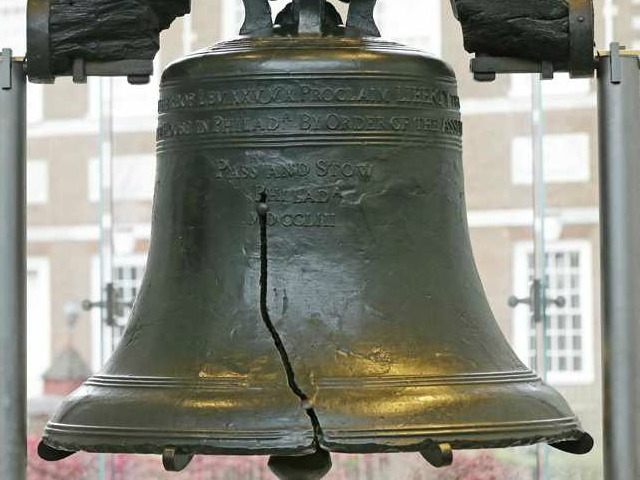Independence Day is traditionally a time for celebration, relaxation and gratitude for the liberties declared to be universal rights on July 4, 1776. Maybe it’s time to also remember — and celebrate — that while our liberties and our independence may have been declared in 1776, they were secured for posterity by the blood of patriots, not the pens and inkblots of judges and politicians.
As a poet of the ’60s once said, the times they are a-changing. Indeed.
It is not a happy thought, but when in the course of human events, dependence not independence becomes the defining feature of our national character, maybe our Independence Day celebrations and speeches should take note of this “transformative” turning point—and make plans accordingly.
Shall we celebrate that we are not yet as corrupt as Greece? That we have not yet repudiated our national debts? Or should we put down the bottle and admit how fast we are approaching that day of reckoning?
Can anyone remember a week that has seen so many disappointments, betrayals and storm warnings as the one we have lived through since the Supreme Court’s shameless abandonment of the Constitution on June 26? We got more than revitalized Obamacare on that day, we got a cold shower: it is now impossible to ignore the naked truth that our elites are laughing at the idea of “limited government.”
True, there have been other decisions of the nation’s top court that have disappointed, even shocked conservatives. But has there ever been a ruling that said in giant letters written across the marquee in Times Square, “the Constitution be damned, separation of powers be damned, we will help Congress write laws we like and reject laws we don’t like.”
On Independence Day 2015, conservatives and patriots need to understand what has happened. By edict signed by our new lawgiver– the Chief Justice of the United States, John Roberts, an appointee of Republican President George W. Bush– the Founders’ principal legacy, the idea of a written Constitution, is now officially dead. The letter of the law is meaningless – and thus no longer a restraint on government — when replaced by the good intentions of our elite rulers.
Thomas Jefferson’s proposition that rights precede government and to protect these rights, governments are instituted among men—that proposition is now discarded in the dustbin of history. The Bill of Rights? Freedom of religion and free speech will mean what enlightened judges want them to mean.
The Republican Party’s white flag of surrender, deployed so often and so readily on Supreme Court nominees and Cabinet appointments, has become the Constitution’s white burial shroud.
Our Founders were not naïve simpletons. They understood that human freedom is a fragile thing, that “eternal vigilance is the price of liberty.” The Founders understood, with Benjamin Franklin, that “you have a Republic, madam, if you can keep it.” Have we?
The sons and grandsons of the Founders, and especially our present generation, have not kept faith with our noble inheritance; we have not kept the flame of liberty burning bright. We have traded it for the security blanket of government subsidies, cronyism, “disparate impact,” and dime store citizenship.
We are at a historic crossroads of citizenship and self-government. What can be done about our abysmal political culture?
Thomas Jefferson had some advice for liberty’s future guardians: “I hold it that a little rebellion now and then is a good thing, and as necessary in the political world as storms in the physical.” Yes, it is time for a little rebellion. What form should our rebellion take?
I do not have a 10-point plan or a formula for reversing our accelerating slide into tyranny. But any fool can see what doesn’t work and what has no chance of success.
If the first rule when you find yourself in a hole is to stop digging, then surely conservatives and all patriots should stop behaving like “Good Germans” — and Good Republicans. Conservatives can no longer accept seats in the back of the Republican bus. The solution is not to demand a better seat on the bus, we need to get off that bus — and get off that highway as well.
But thinking radically means far more than that rejecting the stupidity of the Republican establishment. When the rule of law is being perverted to the rule of the “good intentions” of unelected judges, it is time for serious study of Thomas Paine and Sam Adams as much as Washington and Madison.
In short, it is time for Conservative Civil Disobedience. Civil disobedience is in fact a conservative idea, a few steps short of overt rebellion. It honors the rule of law by insisting on good law and rejecting bad law.
Where does civil disobedience end and rebellion begin? That is a good question. But it is, at least, the right question, and according to Socrates, asking the right question is the beginning of wisdom.

COMMENTS
Please let us know if you're having issues with commenting.